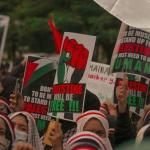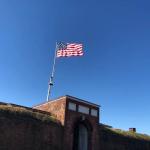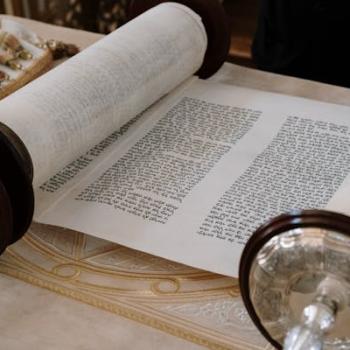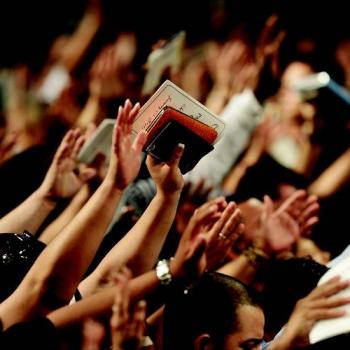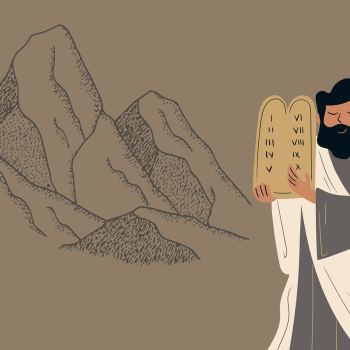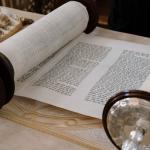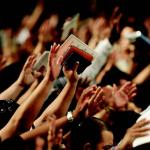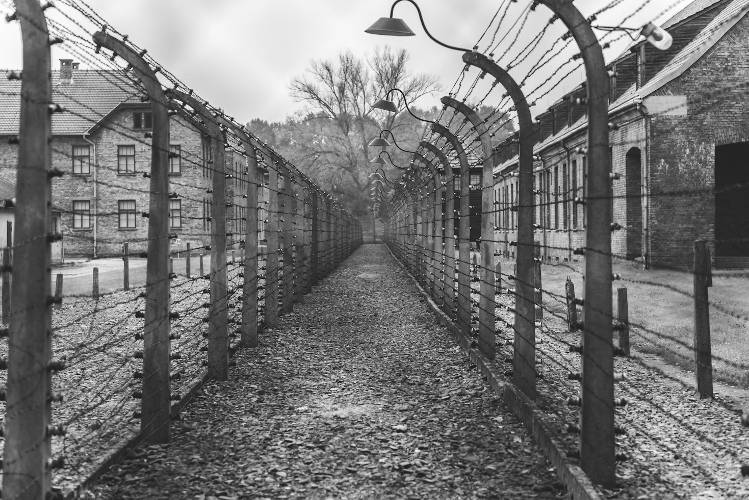
THE RELIGION GUY’S ANSWER:
The moving 80th commemoration of D-Day occurred six days after the barely-noticed 90th anniversary of the Barmen Declaration, one of the past century’s most important religious documents. This anti-Nazi protest by German Protestants addresses the vital question of how churches should respond when dangerous social currents arise.
The Declaration’s authors could not have imagined that, as Britannica.com puts it, the coming decade would bring the “deadliest and most destructive war in human history” and, with it, genocide that reduced Europe’s Jewish population by some 6 million.
Contemplation of Barmen is pertinent when, as with the dire situation in the Germany of 1934, disputes among Christians are central to the less threatened but still polarized America of 2024. Liberals accuse conservatives of corrupting the faith by embracing “Christian nationalism” or Donald Trump’s political movement. Conservatives charge liberals with secularized infidelity on issues like sexual morality and abortion. The Left and Right are also tangling over Gaza and antisemitism much else.
[Note: This article must focus on Protestants and leave aside the equally complex situation faced by Germany’s Catholics.]
Right and Left
The Barmen Declaration was issued on May 31 at an emergency synod in the German city of that name, by delegates who represented the range of Protestant churches. At the start of Nazi rule, they rejected the nation’s long-developing, hard-right nationalism and antisemitism, and the left-wing Christianity that helped foster it. The Declaration insisted that God’s truth, as clearly defined in the Bible and Christian creeds, is absolute and must take precedence over any cultural influences.
An anniversary tribute by Gene Edward Veith of Indiana’s Concordia Theological Seminary admits the Barmen text was “not perfect.” In particular, it did not explicitly condemn Adolf Hitler’s persecution of Jews, as in the earlier Bethel Confession, but that was the obvious precipitating reason for Barmen.
The context: Fearful Germans, reeling from devastating political and economic chaos, gave the flagrantly antisemitic National Socialist party the largest vote in 1932 parliamentary elections. After infighting, Germany’s president appointed the party’s leader, Hitler, as chancellor, on January 30, 1933. That set up the Protestants’ furious Kirchenkampf (“Church Struggle”) between the pro-Nazi “German Christian” (GC) movement and opposition “Confessing Church” (CC).
The Nazis planned to co-opt Protestantism from within for their purposes, under leadership of a puppet bishop, and to boost nationalism by centralizing the loose confederation of 28 Lutheran, Reformed, and United regional church bodies. The GCs quickly organized their first rally in April. By September they managed to control a national Protestant synod, even though William Shirer estimated they represented only 3,000 of the nation’s 18,000 Protestant ministers.
No Jews Allowed
The synod sparked a walkout by approving a church version of the Nazis’ notorious “Aryan Paragraph,” which barred government and school employees, and their spouses, if they had “Jewish blood.” By November, a prominent GC leader even urged removal of the Old Testament from the German Bible. Later on, GC churchmen would concoct a New Testament stripped of Jewish materials and claim that Jesus was “Aryan,” not Jewish.
In the mounting conflict, respected Lutheran clergyman Martin Niemöller (1892–1984) organized the Pastors’ Emergency League, which then summoned the CC’s Barmen synod to champion authentic Protestantism. Participants included a young Lutheran theologian at the University of Berlin, Dietrich Bonhoeffer (1906-1945), who was to become a hugely influential author.
Barmen’s prime personality was Reformed thinker Karl Barth (1886-1968), often considered the 20th Century’s most important Protestant theologian. His “Neo-Orthodoxy” opposed sentimental ”positive Christianity” and contended that liberalism on the Bible and doctrine made weakened churches vulnerable to alien cultural influences like nationalism and antisemitism.
The Barmen Declaration proclaimed that “the inviolable foundation of the German Evangelical Church is the Gospel of Jesus Christ as it is attested for us in Holy Scripture and brought to light again in the Confessions of the Reformation.” It said the faith was “grievously imperiled” by the “devastating” teaching and administration under GC rule.
“False Doctrine”
“We may not keep silent,” delegates stated, in succinct language that affirmed what Christianity has always believed, and on that basis denounced as corrupting “false doctrine” these views:
That there are “areas of our life in which we would not belong to Jesus Christ, but to other lords.”
That the Church “would have to acknowledge as a source of its proclamation, apart from and beside this one Word of God, still other events and powers, figures and truths, as God’s revelation.”
That the church is permitted to abandon its message to accommodate “changes in prevailing ideological and political convictions.”
That the State “should and could become the single and totalitarian order of human life, thus fulfilling the Church’s vocation.”
That “the Church in human arrogance could place the Word and work of the Lord in the service of any arbitrarily chosen desires, purposes, and plans.”
And that the Church ‘should and could appropriate the characteristics, the tasks, and the dignity of the State, thus itself becoming an organ of the State.”
Hitler’s Shift
Barth was fired by the University of Bonn in 1935 for spurning the required oath of allegiance to Hitler and moved back to his native Switzerland. By 1937, Hitler gave up on his effort to co-opt Protestantism and shifted to persecution of dissent. The Nazis soon arrested some 700 Protestant pastors and executed untold thousands of anti-Nazi operatives, including Bonhoeffer because he knew about the 1944 plot to assassinate Hitler., Niemöller spent years in concentration camps, but was among the Protestant resistance leaders who survived.
The Declaration earned a permanent place in Christian history and, Veith writes, “arguably put a brake on” the surging German Christians movement, which despite early success at the national level gradually fizzled and never managed to control Protestant grass-roots congregations.
Resources on this crucial era in church history:
“The Aryan Jesus: Christian Theologians and the Bible in Nazi Germany” (Princeton University) by Susannah Heschel.
“The Holy Reich: Nazi Conceptions of Christianity, 1919-1945” (Cambridge University) by Richard Steigmann-Gall.
“Twisted Cross: The German Christian Movement in the Third Reich” (University of North Carolina) by Doris Bergen.
“The Third Reich and the Christian Churches” (Eerdmans), an anthology of relevant documents edited by Peter Matheson.


